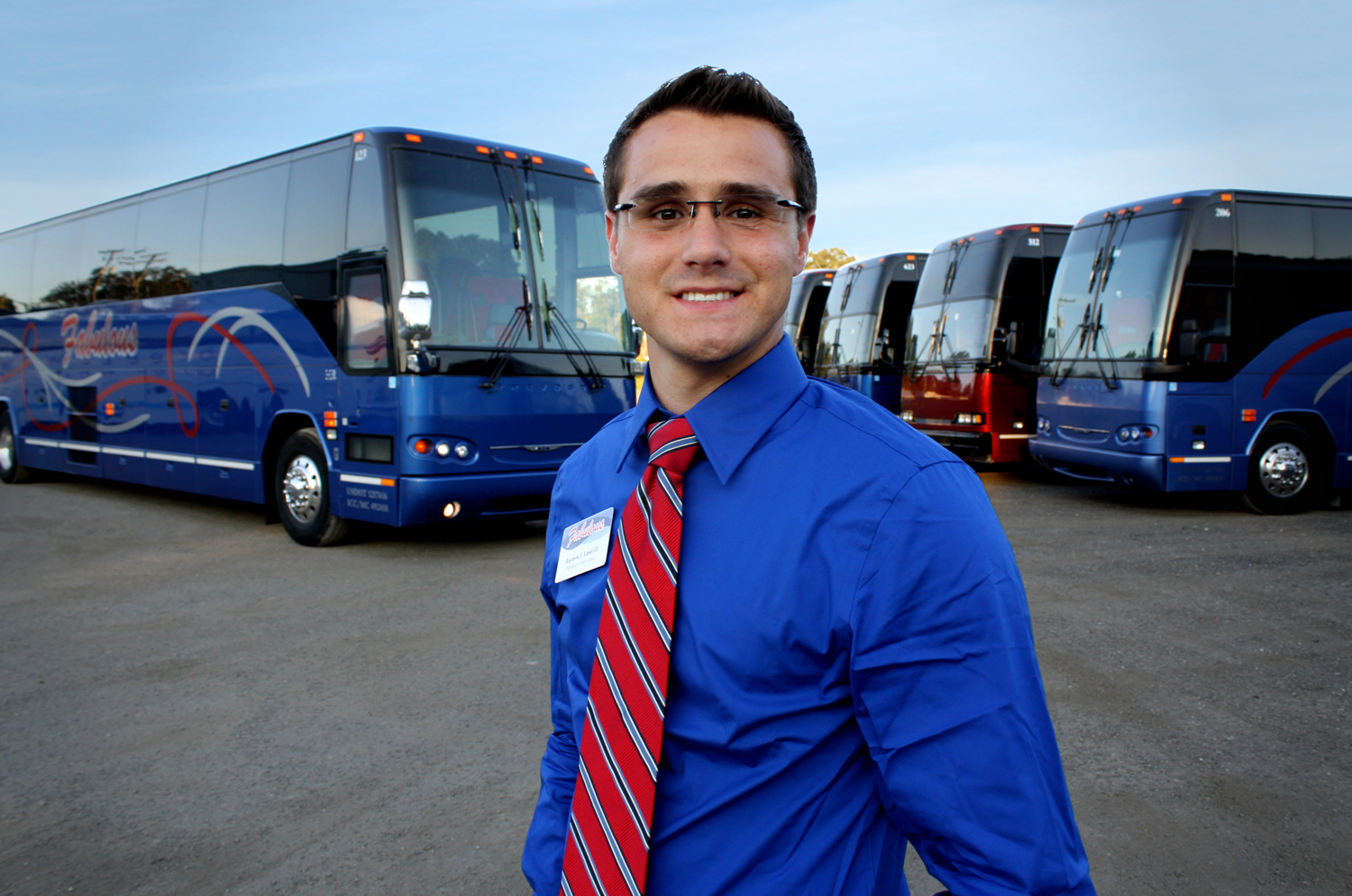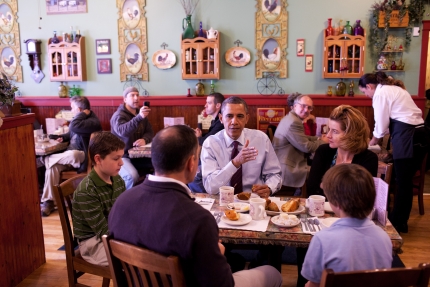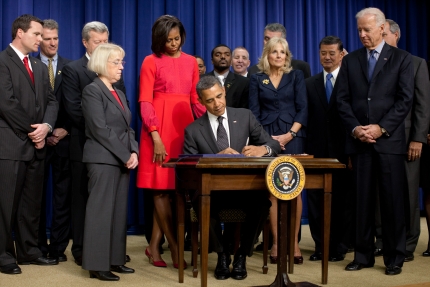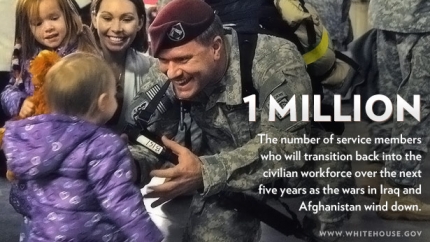Jobs News
Empowering America’s Job Creators in Indian Country
Posted by on December 1, 2011 at 10:50 AM EDTTuesday night in Talequah, Oklahoma, SBA’s Deputy Administrator Marie Johns and I had the chance to talk with nearly 20 young Native American entrepreneurs. They had great ideas for building businesses, ranging from construction to IT, to defense contracting. As someone who grew up in a small-business family on a reservation in Cherokee, North Carolina, I could relate to their needs, concerns, and questions.
Today, I work with Native entrepreneurs and small business owners throughout the U.S., helping them find the tools they need to grow and create jobs. For example, we helped over 500 firms owned by Native Americans, Alaska Natives, and Native Hawaiians to get SBA loans and microloans in the fiscal year that just ended.
Today, the most important way we can continue to help these small businesses is through the President’s proposals in the American Jobs Act. For example, President Obama has proposed cutting in half payroll taxes, which will help more than 20,000 Native American owned businesses as they continue to grow and create jobs.
In addition, about 1.5 million Native American workers – throughout urban, rural, reservation and village communities – will benefit from the extension and expansion of the payroll tax cut, giving them and their families more money to keep our local economies strong at this critical time.
This Friday, the SBA’s Administrator Karen Mills and other leaders throughout the Administration will be hosting the third White House Tribal Nations Conference to discuss these and other issues affecting our communities.
I will be excited to share with them the accomplishments that SBA has made in recent years: from high-intensity training for over 200 Native American entrepreneurs, to technology transfer partnerships between tribal colleges and local businesses, to counseling for Native American veterans, and more.Also, last month, as part of National Native American Heritage Month, I hosted SBA’s web chat with Native business owners throughout the U.S. to underscore economic growth and job creation for Native Americans.
Looking forward to 2012, we will be working even harder, with new primers and distance learning courses targeted at increasing the strength and number of successful Native-American owned businesses.
Last night, as I listened to the young entrepreneurs that I met, I was reminded again of the power and strength of America’s entrepreneurial spirit in Indian Country. Let’s make sure that both today’s and tomorrow’s Native American job creators have the tools they need to build a business and create jobs.
Christopher James is the Assistant Administrator for Native American Affairs, U.S. Small Business Administration.
Learn more about EconomyFlorida CEO Praises "Non-Partisan Tactics" in President Obama's Jobs Plan
Posted by on December 1, 2011 at 9:00 AM EDTThe White House Business Council invited small business owners and entrepreneurs from across the country to a forum we hosted with Business Forward earlier this month. While they were here, we spoke to some of the people we met about the secrets of their success, and found out how the American Jobs Act will enable them to grow even more quickly in 2012.

Matthew Smith’s company, Shoes for Crews, is the global leader in slip-resistant footwear. Smith, the CEO, says he has “footholds” in many of the largest food service and hospitality chains in the US, including McDonald’s, Burger King, Wendy’s, YUM Brands, MGM Resorts, and Caesars Entertainment; employees at those companies wear his shoes, helping eradicate employee slip and falls - the primary cause of work-related injuries and worker’s compensation costs in this industry.
Employees at over 140,000 workplaces in the USA, Canada, Europe, Asia and Australia wear Shoes for Crews products, and Smith says he is gearing up for further global and domestic expansions. He has more than 500 employees world-wide, with over 220 working in the West Palm Beach headquarters. In the last year, Shoes for Crews has hired 25 new executives, managers and entry level employees.
The business was founded in 1984 by Smith’s father, Stanley Smith, who was producing a small collection of footwear for nurses out of the family apartment. The business was transformed when Arna Smith, Stanley’s wife, tried selling the nurses shoes to Burger King. Her contact at the burger chain suggested that if somebody could invent shoes that “gripped” on the slippery floors of a restaurant, it would be a great idea. The Smith family took this idea and ran with it.
The American Jobs Act would enable Shoes for Crews to continue expanding. “Payroll tax cuts for new hires, regulatory reforms, extending the 100% expensing incentive, and tax credits for hiring the long-term unemployed are non-partisan tactics that should be universally approved by the business community at large, as long as they don’t increase the long-term deficit of the USA,” says Matthew Smith.
Learn more about EconomySmall Business Owner Says Payroll Tax Cuts Are "Game Changers"
Posted by on November 30, 2011 at 8:00 PM EDTPresident Obama was in Scranton, Pennsylvania today to talk about the importance of extending the payroll tax cut for all working Americans and their families, and for the strength of the overall economy. These tax cuts will also have a tremendous impact on America's small businesses, 91.5 percent of which have fewer than 5 employees. The White House Business Council spoke to the owner of one such business in Knoxville, Tennessee who says the President's plan will help her business grow by freeing up her own capital, and that of her potential and existing clients as well.
The tax code and creativity are not commonly linked in the minds of most people. Not so for Jenny Hines, President of Hines and Company Accountants, located in Knoxville, Tennessee. “I was always interested in taxation not simply because of the planning and number crunching,” says Jenny, “but because that planning required a certain level of creativity.”
After graduating from the University of Tennessee with a Masters Degree in Taxation, Hines went to work for one of the largest CPA firms in the country. But after watching many of the firm’s small business clients unable to afford its services, she decided to strike out on her own. “There was an attitude at the large firm – and it certainly wasn’t everybody, but still – that was ‘How little work can we do, and still charge the client?’ People and their businesses were too often treated like commodities."
Learn more about EconomyPresident Obama’s Payroll Tax Cut Will Help My Family and Yours
Posted by on November 30, 2011 at 7:30 PM EDTToday, President Obama is traveling to my hometown of Scranton, Pennsylvania to meet with residents to discuss the importance of extending and expanding the payroll tax cut that has given crucial tax breaks to millions of families across the country over the past year. If Congress passes the proposal laid out by the President, families in Scranton – including my friends and neighbors– would see that tax cut continued, and could receive more than $500 in addition to what they are currently receiving next year. However, if they fail to act, all those families in the Lackawanna River valley – and millions of others across the country – will see their taxes increase – potentially by $1,000 a year! That is just plain unacceptable.
As he has shown time and time again over the last three years, President Obama will continue to fight to strengthen the economy and rebuild the middle class by restoring the basic values that made our country great. America prospers when hard work pays off and responsibility is rewarded – and when everyone, from workers in the Electric Cityto Wall Street, does their fair share and plays by the same rules.
The fact is, our economic problems weren’t caused overnight, and they won’t be solved overnight. It will take time to rebuild our economy. It will take time to rebuild an economy that restores security for the middle class and renews opportunity for folks trying to reach the middle class. We need to rebuild an economy that’s based not on outsourcing, tax loopholes, and risky financial deals, but one that’s built to last – one where we invest in things like education and small businesses and manufacturing things the rest of the world buys.
The President and this Administration have spent the past three years cutting taxes for ordinary, middle class Americans, and he’ll continue to fight for the middle class. As Vice President Joe Biden – another Scranton native – has said over and over again, “a strong middle class equals a strong America… we can’t have one without the other.” An extension of the payroll tax cut is an important step to rebuilding and strengthening America’s middle class in places like Scranton, and all across America.
Rebuilding our nation will take time. But we are going to get it done. We are going to keep fighting. It’s time for Congress to get to work and extend and expand the payroll tax cut for millions of Americans across the nation.
Learn more about EconomyPresident Obama at Scranton High
Posted by on November 30, 2011 at 6:01 PM EDTIf Congress doesn't extend the payroll tax cut, 6.7 million people in Pennsylvania will see their taxes go up.
That's the message that President Obama took to Scranton this afternoon. He told a crowd assembled in the town's high school auditorium that if Congress fails to extend the tax cut through 2012, it would deliver a "massive blow" to the nation's economy:
[If] Congress doesn’t act to extend this tax cut -- then most of you, the typical middle-class family, is going to see your taxes go up by $1,000 at the worst possible time. A young lady just said she can’t afford that. It would be tough for you.
The Senate is set to vote on extending these tax cuts as early as this week, and the President told people in Scranton to send their lawmakers a message:
[To] everybody who is here, everybody who is watching, send your Senate a message -- send your senators a message. Tell them, "Don't be a Grinch." ... Don’t vote to raise taxes on working Americans during the holidays. Make sure to renew unemployment insurance during the holidays. Stop saying "no" to steps that would make our economy stronger. Put our country before party. Put money back into the pockets of working Americans. Do your job. Pass this bill.
Read the full remarks here.
Montana Entrepreneur Says President Obama's Plan Will Help Her Create New Jobs
Posted by on November 30, 2011 at 9:00 AM EDTThe White House Business Council invited small business owners and entrepreneurs from across the country to a forum we hosted with Business Forward earlier this month. While they were here, we spoke to some of the people we met about the secrets of their success, and found out how the American Jobs Act will enable them to grow even more quickly in 2012.

Sarah Calhoun, the CEO of Red Ants Pants, a Montana clothing manufacturer, wants Congress to pass the American Jobs Act:"We are growing rapidly here and will need to continue hiring new employees. The payroll tax breaks included in the American Jobs Act would allow me to hire new employees sooner than I otherwise would be able to do so. Every new job, even in rural Montana, is a new job for America."
Calhoun is an unlikely fashion tycoon. Raised on a farm, her first jobs were working the fields with her father and leading wilderness expeditions for Outward Bound. The inspiration for Calhoun’s business was no Fashion Week runway; she started her company in 2006 after identifying a real gap in the marketplace: sturdy pants for hardworking women like herself. “I was constantly putting down my tools, yanking on my pants- and getting totally fed up.”
In high school, Calhoun had cut and re-sewn her father’s old work pants to wear on the job and while they stood up to the rigor of the work, the fit was never right. Her Red Ants Pants have a gusseted crotch, reinforced knees, are made from durable cotton canvas, have been designed especially to fit the female shape and come in 70 sizes and two main styles. They are produced in Washington state, at a manufacturing company also owned by a woman, and they are sold online, out of a storefront in White Sulphur Springs, Montana and through a mobile effort involving an Airstream trailer and client-hosted sales events that’s been dubbed the Tour de Pants.
Even the company’s name is a tribute to hard working females, of the insect variety, anyway: Calhoun says she was inspired by the social structure of red ant colonies, which are made up of primarily female workers, "meaning that it’s the women who do all the work!"
Learn more about EconomyBargain Hunters Be Wary
Posted by on November 29, 2011 at 5:04 PM EDTAs Americans kick off the holiday shopping season, it's a good time to remember the importance of making responsible purchases and rejecting counterfeits that pose a threat to American jobs, safety and health. Today I joined Attorney General Eric Holder and other Administration officials at the White House to announce progress we’ve made cracking down on intellectual property theft crimes, and to launch a public awareness campaign to combat the purchase and sale of counterfeit and pirated products.
As President Obama has said, in order to win the future in the global economy America must out innovate our competitors. Intellectual property theft undermines our nation's innovators and entrepreneurs. The new campaign will educate the public about the full range of intellectual property crimes we confront, from counterfeit consumer goods and fake pharmaceuticals laced with potentially dangerous substances to illegal downloads, while highlighting the potential threat these crimes pose to economic prosperity and public safety. The campaign will include a television PSA, materials delivered through social media, and radio, web, and print ads.
The Administration has been proactive on multiple fronts in order to increase intellectual property enforcement. We have increased law enforcement efficiency, advocated for legislative reform, informed the public about the negative impacts of intellectual property theft, and engaged the private sector to foster cooperation and create voluntary solutions through productive conversations. Today’s announcement marks an important milestone in the Administration’s ongoing efforts to curb intellectual property theft that harms the economy, undermines job creation, undermines innovation, and jeopardizes the health and safety of American consumers.
At the event, Attorney General Holder and I were joined by Acting Deputy Secretary of Commerce Rebecca Blank, who discussed the ways in which counterfeit goods impact the everyday lives of American families. Director of Immigration and Customs Enforcement John Morton was also in attendance to discuss ongoing Administration law enforcement efforts concerning counterfeit goods and intellectual property crimes. And Ann Harkins, National Crime Prevention Council President and CEO, was on hand to unveil the products of the campaign that will help build awareness about the harm caused by counterfeit goods and engage the public in stopping intellectual property theft.
For more information about the campaign, visit: http://www.ncpc.org/getreal.
Employee-Owned Texas Aviation Company Says Passing the American Jobs Act Will Help their Community
Posted by on November 29, 2011 at 9:00 AM EDTThe White House Business Council invited small business owners and entrepreneurs from across the country to a forum we hosted with Business Forward earlier this month. While they were here, we spoke to some of the people we met about the secrets of their success, and found out how the American Jobs Act will enable them to grow even more quickly in 2012.

An employee-owned company in Texas says the American Jobs Act will help their company, and their community. “The employer portion would allow for us to have more funds to invest in growth and capital equipment in 2012,” explains David Ickert, VP of Finance at Air Tractor, Inc. “The worker tax relief would allow for more available cash in the pockets of US workers which could be used for purchases to help in a positive manner in the local economy.”
Air Tractor has always taken its role as a community leader very seriously, in fact community support launched the company in the first place. In the early 1950s, Leland Snow spent summers building agriculture airplanes from scratch in his mother’s garage in Texas’ Rio Grande Valley, the birthplace of the aerial agriculture industry. His reputation in the nascent field grew so quickly that, in 1958, 58 city and business leaders in Olney, Texas decided to take a chance on this young man, and signed guarantees at the local bank to give Snow a working capital line of $50,000.00 enabling him to start his aircraft manufacturing company in their town.
Snow’s first agricultural aircraft was named the Snow, next came the Thrush, then in 1972 Snow built the first Air Tractor, the AT-300, which later became the AT-301. In 1977, Air Tractor introduced the first turbine powered aircraft and in 1990, Snow created the world’s largest agriculture aircraft. According to Snow’s family, he built a “53-year legacy of aircraft design and innovations that ushered in the era of the modern agricultural spray plane.”
Today Air Tractor Inc produces the world’s most popular aerial spray aircraft as well as single engine air tankers that are used in aerial firefighting. The company’s sole mission is to “provide aircraft, parts and services to help feed and protect the world and to provide stable jobs for their employee owners.” Air Tractor is a 100% employee owned company which has been able to expand to new international markets while expanding job opportunities in Olney, Texas.
In 2010, international sales accounted for more than 50 percent of Air Tractor’s business, and the company has been able to help those in remote areas of the world increase grain production. Of all their accomplishments, Ickert says the company is most proud that they are able to simultaneously meet the food needs of people around the world while meeting employment needs on Main Street in his community.
Related:
This crafty Nevada business owner says the American Jobs Act would remove a roadblock to growth
NY CEO says America can't wait to address our economic problems
North Carolina entrepreneur says the American Jobs Act will help expand her businessLearn more about EconomyCrafty Nevada Business Owner Says the American Jobs Act Would Remove a Roadblock to Growth
Posted by on November 28, 2011 at 9:48 AM EDTThe White House Business Council invited small business owners and entrepreneurs from across the country to a forum we hosted with Business Forward earlier this month. While they were here, we spoke to some of the people we met about the secrets of their success, and found out how the American Jobs Act will enable them to grow even more quickly in 2012.

Laura Zander and her husband Doug left San Francisco and their jobs as software engineers at the end of the dot com bubble. They first settled in a small California town and poured their savings into Zander’s store, Jimmy Beans Wool in 2002. “Jimmy” is Laura’s nickname from her husband after their favorite musician. The “Beans Wool” described the store itself: part yarn shop, part coffee shop. While the coffee was good, it was the yarn that became the hit, and Zander sold the espresso machine on eBay six months later. Knitting had been Zander’s hobby. It was now her business.
Now located in Reno, Nevada, Jimmy Beans Wool is taking off. Zander expects to sell more than $6 million worth of products this year, an almost 600 percent sales improvement over five years. Zander strives to make the online shopping experience like the real thing. Items ship within 12 hours of purchase seven days a week and customers can browse 1,000 video product reviews. Zander is also committed to corporate social responsibility. Jimmy Beans Wool sponsored six college scholarships last year and is an official sponsor of the US Snowboard and Freeskiing Teams. This summer Zander will release a book featuring celebrity-designed knitwear to launch the “Stitch Red” campaign against heart disease.
According to Zander, the President's plan to create jobs will further fuel her company’s success. “Our business is self-financed and debt free – we want to keep it that way. The only thing preventing our additional growth is the cash flow to purchase more inventory and sell more products. Through a reduction in payroll taxes, the American Jobs Act would help remove a roadblock. To put it simply, for every dollar that the American Jobs Act would save us in payroll taxes, we can increase our revenues by $2.”
Learn more about EconomySupport Your Local Businesses on “Small Business Saturday”
Posted by on November 23, 2011 at 1:00 PM EDTEd. note: This was cross-posted from the Small Business Administration's Open for Business blog
You’ve heard of Black Friday. And Cyber Monday. But did you know that this Saturday is Small Business Saturday? We’re encouraging everyone to visit a small business to do some holiday shopping this Saturday.
As President Obama said in a message out to all Small Business Saturday supporters:
From the mom-and-pop storefront shops that anchor Main Street to the high-tech startups that keep America on the cutting edge, small businesses are the backbone of our economy and the cornerstones of our Nation’s promise. These businesses create two out of every three new jobs in America, helping spur economic development in communities across our country and giving millions of families and individuals the opportunity to achieve the American dream. Through events such as Small Business Saturday, we keep our local economies strong and help maintain an American economy that can compete and win in the 21st century.
When you walk down Main Street in any city in America, you can often find great restaurants, service providers, and handcrafted, Made-in-America products from local shops. It’s wonderful to simply go in and visit with local business owners and hear what’s happening in the community.
There are many people in my life that appreciate a unique gift from a local business, like the blueberry jam I pick up at the Farmers’ Market in my hometown of Brunswick, Maine. This Saturday, I’m planning to go back to that market early in the morning, and then I will travel to Roslindale, Massachusetts, to celebrate Small Business Saturday with Boston Mayor Tom Menino. Many other top-level officials throughout the Administration are also “shopping small” this Saturday.
Everyone knows that your dollar goes a long way at when you buy a product or service from a small business. That money goes right back into the local economy. And that’s important, because half of working Americans either own or work for a small business, and small businesses create two out of every three new jobs.
It’s great to find the perfect gift from a small business. Often, when you carry it to the counter, you can see the business owner’s eyes light up. They tell a story about how that gift was made. Or where it came from. Or how it’s a one-of-a-kind. And the gift immediately becomes even more meaningful and special. Moments like that are what makes the holidays magical.
In addition to our support for Small Business Saturday, the SBA is working hard to make sure even more small businesses can keep growing. For example, we had an all-time record for SBA loans this year, with over $30 billion in lending support that helped about 60,000 small businesses buy a new building, get more equipment, or hire more workers. And, right now, the President is calling on Congress to cut in half the payroll taxes for small businesses as part of the American Jobs Act.
Let’s all do our part to support America’s small businesses as they continue to strengthen our economy and create jobs. Happy Thanksgiving, Happy Small Business Saturday, and Happy Holidays.
Learn more about EconomyPresident Obama's Record on Taxes
Posted by on November 22, 2011 at 7:25 PM EDTRight now, President Obama is going all out to extend the payroll tax cut for the middle class -- and expand it for 2012.
And that effort underscores an important fact: This President has proposed and enacted thousands of dollars of tax relief for American families and small businesses.
In his first year in office, President Obama cut taxes for 95 percent of working families through the Recovery Act with the Making Work Pay tax cut.
With that same piece of legislation, he created the American Opportunity Tax Credit -- which is currently helping more than 9 million families afford the cost of college.
The Recovery Act also lowered the threshold for refunds through the Child Tax Credit -- providing a tax cut to 11.8 million working families.
The President also expanded the Earned Income Tax Credit for families with three or more children -- giving them a tax cut of up to $640 this year.
President Obama has passed tax cuts for small businesses 17 times. These measures range from allowing corporation to expense 100 percent of their new investments until the end of 2011 to creating a new deduction for health care costs for the self-employed.
And just this week, the President also signed legislation to create tax credits for businesses that hire veterans.
If Congress passes the American Jobs Act, a typical family of four would see their taxes decrease an additional $2,325 -- bringing their total tax relief to about $5,425 for the President’s first term.
That number goes up if the family is helping their kids pay college tuition.
This lower tax rate hasn't come about through happenstance. It's a product of hard work from President Obama. Those of us in the middle class have more money in our pockets because the President made it a priority.
And it's going to take more hard work between now and the end of the year to keep things that way.
Learn more about TaxesA More Sustainable Future
Posted by on November 22, 2011 at 4:30 PM EDTAll across the country, thousands of Americans spend a great amount of time commuting to their jobs. This is precious time that could be spent with their families and not sitting in traffic. As our families grow and our lives get busier, living close to work becomes vital to our quality of life. We are constantly looking for a better solution, something to make things just a little bit easier.
Now, thanks to nearly $96 million in Sustainable Communities Awards announced this week, 27 communities and 29 regions across the country will be able to establish a more livable, equitable, and economically competitive future. These funds, awarded to two grant programs, are poised to help change the face of communities across the country.
The Community Challenge Grants aim to reform and reduce barriers to achieving affordable, economically vital and sustainable communities. Awarded to large and small communities, these funds will help address local challenges to integrating transportation and housing. Funds awarded to communities may also be used to retrofit main streets to provide safer routes for children and seniors and to preserve affordable housing and local businesses near new transit stations.
The Regional Planning Grants allows grantees to support efforts that integrate housing, land-use, economic and workforce development, transportation, and infrastructure developments. This will empower regions to consider how all of these factors work together to create more jobs and economic opportunities.
As a direct result of this funding thousands of jobs will be created and will impact the lives of 45.8 million Americans. This means that 45.8 million Americans will be able to spend less time in their cars and more time at home with their families.
Read a complete summary of each grant awarded funding today.
Learn more about Economy, Urban PolicyPresident Obama: "Hire a Veteran"
Posted by on November 21, 2011 at 6:51 PM EDTThis morning, President Obama signed the "VOW to Hire Heroes Act" into law, telling those in attendance:
Back in September, I sent Congress a jobs bill. And in it, I proposed a tax credit for any business that hires a veteran who’s been unemployed for at least four weeks. I proposed an even bigger tax break if a business hires a veteran who’s been unemployed for at least six months. And if a business hires an unemployed veteran with a disability related to their service, I proposed doubling the tax break that we already have in place.
Today, because Democrats and Republicans came together, I’m proud to sign those proposals into law. And I urge every business owner out there who’s hiring to hire a veteran right away.
The is just one of the initiatives the President has enacted in order to ensure that the country fulfills its obligation to our servicemembers and their families.
And it's just one part of the President's plan to put the American people back to work. At the bill signing, he told lawmakers that families all over the country are demanding the same kind of bold, bipartisan action.
"My message to every member of Congress is keep going," President Obama said, "Keep working."
Read more:
- Tax credits for employers who hire unemployed veterans and veterans with service-connected disabilities are just one important part of the Obama Administration's plan to to help veterans translate their military skills for the civilian workforce. New online tools are available to aid their search for jobs, and the Administration has partnered with the Chamber of Commerce and the private sector to make it easier to connect our veterans with companies that want to hire them.
- Read the story of Jason Hansman, who managed hundreds of reconstruction projects that totaled millions of dollars while serving in Iraq, but receieved only one job offer, to fill a night mall cop position.
- Read the story of Navy veteran Eric Smith, who has more than five years experience as a military medic, but works today as a hospital janitor.
- Read the story of Maria Canales, an Army veteran who spent nearly four years looking for a job because she had trouble communicating how the skills she learned in the military prepared her to be an excellent employee in the civilian workforce.
Standing by America's Heroes
Posted by on November 21, 2011 at 12:09 PM EDTThrough the course of the past decade, nearly 3 million veterans have transitioned back to civilian life. As the wars in Iraq and Afghanistan draw to a close, more than a million more service members will join them.
Each of these individuals is highly-trained, highly-skilled, and motivated. They represent some of the best America has to offer.
As a nation, we owe an obligation to these heroes, and it's easy to see how we'll benefit as much from their contributions to the civilian workforce as we have from their service in the military.
That's why creating jobs for veterans has been a major priority for President Obama.
Under his direction, the federal government has hired more than 120,000 vets. Joining Forces, led by the First Lady and Dr. Jill Biden, has organized an initative through which private businesses have pledged to hire an additional 135,000 servicemembers and military spouses. And the Obama administration has set up a series reforms and programs to help veterans get back to work -- you can learn more by visting whitehouse.gov/vets.
Today, President Obama will take another step to help fulfill our obligation to those who wear the uniform of the United States when he signs legislation to create a pair of tax credits for businesses that hire veterans.
Throughout the day, we'll share stories of veterans who will benefit from these measures. Be sure to check it out.
Hiring Vets Is Smart Business
Posted by on November 21, 2011 at 11:23 AM EDTToday is a historic day for veterans of Iraq and Afghanistan. When President Obama signs the VOW to Hire Heroes Act into law, an entire generation of new vets will be provided much-needed practical support to transition from combat to careers. As an Iraq vet I am privileged to lead the membership team at Iraq and Afghanistan Veterans of America (IAVA), the country’s first and largest nonpartisan organization committed to our newest veterans. And I speak for all of us when I thank the lawmakers who worked so hard together, putting aside party, to get this bill passed. We also thank the President for his leadership on the issue - for acting so quickly on this legislation and for bringing national attention to the veterans’ unemployment crisis.
Some 240,000 young vets were out of work in September 2011 alone, and with the Iraq War set to end in two months, a surge of troops will be returning home. And most of them will be looking for work.
There are moral and patriotic reasons to care for returning combat vets. But hiring vets is also smart business. The hundreds of combat patrols they’ve been on may not mean much to a civilian employer, but the millions of dollars of equipment, complex planning and logistic they had responsibility for should.
Take my story, for example. I served in Iraq as a proud noncommissioned officer in the Army from 2004-2005, managing hundreds of reconstruction projects in a Civil Affairs company that totaled millions of dollars. Armed with that experience and a political science degree from the University of Washington, I entered the civilian job market in 2008 with a solid resume. Yet after nine months and 375 resumes sent out, I only received one interview request – from a temp agency, looking to fill a night mall cop position.
I took that job, with drive and resolve. Vets tend not to make excuses and whine about employment prospects. We learned in the military that all jobs deserve attention and respect. But security is not what I wanted to do. And I think it’s fair to say I deserved different opportunities. I wanted opportunities that would utilize my potential as a leader, my schooling, and my experiences in the Army. My generation of vets grew up learning how to save lives, build roads and schools, negotiate with the local community, and work with a team - all while under fire. We’ll certainly be able to handle the worst the civilian world can throw at us, but we need a foot in the door first. That’s why the VOW to Hire Heroes Act is so important. The tax credits for employers should get employers’ attention and open the door. Once in, we can take it from there. We’ll deliver.
The time for America’s economic revival is now. And like our grandparents before us, it’ll be another Greatest Generation leading the way.
Transportation Executive "Can't Wait" for Congress to Pass Tax Cuts in the American Jobs Act
Posted by on November 20, 2011 at 10:12 AM EDTThe 100% expensing provision of the American Jobs Act will enable Ray Land to purchase 20 additional motor coaches for his business, creating work for the company that builds them, and jobs for more drivers in Florida. In addition, Land says “the new tax provisions are great. In particular, we more likely than ever to hire the long-term unemployed.”
Ray Land has always exhibited a passion for getting people where they need to go. As one of the youngest motor coach operators in North America and founder of Fabulous Coach Lines, Land has dedicated himself to providing his customers with a safe and “fabulous” travel experience.
Land’s experience in the motor coach business began early in life when he began planning field trips for his middle school classes and then later planning trips throughout high school for local community organizations. Continually underwhelmed by the operating conditions of the motor coaches he chartered, Land decided he could provide a more enjoyable and reliable travel experience by operating his own motor coach. At the age of 17, and with a little help from his parents, Land did just that, purchasing his first motor coach over the Internet. Fabulous Coach Lines was born.
Since founding the company in 2004, Land has grown Fabulous Coach Lines into a regional leader that now boasts a fleet of 30 motor coaches. “My team and I constantly strive for excellence, and most importantly, make keeping people happy our number 1 goal.” In keeping with this commitment, Land contacts every customer after their trip to get vital feedback on ways to improve his company’s travel experience. It is this type of steadfast commitment to customer satisfaction that has underscored Fabulous Coach Lines’ development and growth. Land has also demonstrated an ability to adapt to changing times. In June 2009, Land launched his “Breezeways” service line, providing a safe, enjoyable, and more economical travel experience to groups unable to afford his Fabulous Coach line. It soon became the preferred travel option for school groups, youth camps, and family reunions, providing Land with a steady revenue stream.

Related:
This crafty Nevada business owner says the American Jobs Act would remove a roadblock to growth
NY CEO says America can't wait to address our economic problems
North Carolina entrepreneur says the American Jobs Act will help expand her businessLearn more about EconomyWisconsin Brewery Owner Says Passing American Jobs Act Is "Way Overdue"
Posted by on November 19, 2011 at 10:23 AM EDTThe White House Business Council invited small business owners and entrepreneurs from across the country to a forum we hosted with Business Forward earlier this month. While they were here, we spoke to some of the people we met about the secrets of their success, and found out how the American Jobs Act will enable them to grow even more quickly in 2012.
The 100% expensing provisions in the American Jobs Act are just the incentive Deb Carey needs to kick off a major upgrade at her Wisconsin brewery. In 2012, New Glarus Brewing Company will invest almost $2 million in a new 15,000 square foot warehouse, new kegs, a gift shop addition, new manufacturing equipment to improve energy efficiencies and production upgrades.
“The tax cuts in the American Jobs Act will make it more cost-effective to expand our employee base by 10 percent and give out annual raises. It will also help us write off over $1 million of new equipment investments, and ultimately, create more jobs and economic activity in our community,” says Carey.
Learn more about EconomyTransportation Executive Says the American Jobs Act Will Enable Him to Hire
Posted by on November 18, 2011 at 10:29 AM EDTThe White House Business Council invited small business owners and entrepreneurs from across the country to a forum we hosted with Business Forward earlier this month. While they were here, we spoke to some of the people we met about the secrets of their success, and found out how the American Jobs Act will enable them to grow even more quickly in 2012.

Aaron Tennant, who owns Tennant Truck Lines, Inc., says passing the American Jobs Act will create jobs in his company. “Cutting the payroll tax in half and creating a payroll tax holiday for 2012 are very powerful and will help my decision to hire. Most employees don’t understand the additional cost we incur to provide jobs. We can use this windfall to invest back into the business, in our case means investing in additional trucks which require drivers and support staff."
Tennant Trucking Lines, Inc. is a third generation industry leader that had a deceptively modest beginning. In 1946, Sydney Tennant started “hauling swine on a milk run” from rural Iowa and Illinois to Chicago, according to his son, Bob Tennant. With the help of his supportive family, Tennant turned his dream of creating a profitable trucking company that provided jobs for hardworking folks in the rural Midwest into a thriving business. Today that business is run by Aaron Tennant, Bob’s son and Sydney’s grandson, who continues to execute his grandfather’s vision of success.
Learn more about EconomyLife Sciences Supply Company Says the American Jobs Act Will Help Drive Growth
Posted by on November 17, 2011 at 5:14 PM EDTAfter 15 years in the biomedical industry, Mickey Blake became frustrated by the sheer amount of laboratory waste produced every day. Two years ago, she and her partner Peter Kegel set out to identify the largest unregulated laboratory waste products. Turns out it was single-use plastics; in fact Blake estimates that more than 500,000 tons of single-use plastics are going into the landfill each year, creating a long-term pollution problem. This discovery led to the launch of Mt. Baker Bio in Everett, Washington.
“Identifying this was a challenge because there were little to no metrics in place. Next to water and energy consumption, plastics are one of the most significant forms of waste, but there was no direct infrastructure in place to help deal with the issue. There is a huge push to conserve water, energy and safe chemicals usage but virtually nothing addressing plastics.” Blake and Kegel designed environmentally friendly alternatives that are recyclable, reusable or can be recognized as a food source by microorganisms in a biologically active landfill.
Learn more about EconomyAmbassador Kirk Updates the President's Export Council on 2011 Trade Updates and Initiatives
Posted by on November 16, 2011 at 7:10 PM EDTEarlier today I had the opportunity to participate in a meeting of the President’s Export Council (PEC) at the White House. Members of the PEC gathered to strategize and discuss ways to reach the President’s goal of doubling our nation’s exports by the end of 2014. In addition, the private sector members of the PEC presented Administration officials with letters of recommendations on topics such as expansion of the Information Technology Agreement (ITA), Middle East/North Africa commercial engagement and workforce readiness. We thanked them for their ideas, and underscored the importance of their input to the Administration’s efforts to boost exports.
During the meeting I emphasized the milestone we reached with the signing of the recent trade agreements with Korea, Colombia,and Panama,as well as the Trans-Pacific Partnership. Additionally, I highlighted the importance of the work with Congress that lies ahead to terminate the application of the Jackson-Vanik Amendment to Russia now that it will be formally invited to join the World Trade Organization next month.
Other senior officials joining me in today’s meeting were Commerce Secretary John Bryson, Labor Secretary Hilda Solis, Transportation Secretary Ray LaHood, Small Business Administrator Karen Mills, Chairman of the Export-Import Bank Fred Hochberg,and Deputy U.S. Trade Representative Miriam Sapiro; along with White House Chief of Staff Bill Daley and Senior Advisor Valerie Jarrett. Today’s meeting was live streamed on www.WhiteHouse.gov.
The PEC was established in 1973 by President Richard Nixon. The initial group consisted of 20 members, all of whom were business executives. Six years later, in 1979, President Jimmy Carter reconstituted and expanded the PEC. Council membership grew to the current roster of 48 members and was extended to include leaders of the labor and agriculture communities, members of Congress, and members of the executive branch.
Learn more about , , Economy, Foreign Policy
- &lsaquo previous
- …
- 6
- 7
- 8
- 9
- 10
- 11
- 12
- 13
- 14
- …
- next &rsaquo





